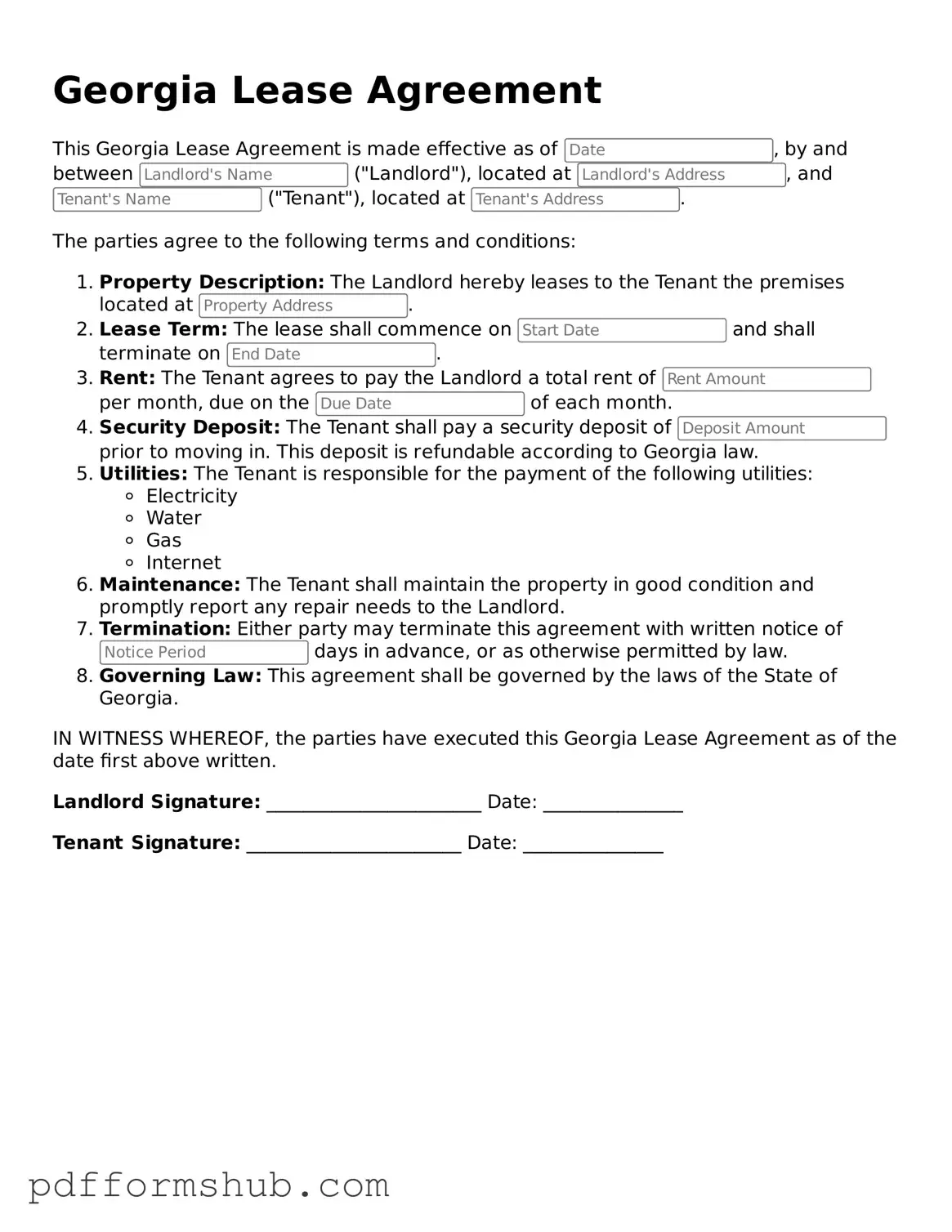Attorney-Verified Lease Agreement Form for Georgia State
The Georgia Lease Agreement form is a legal document that outlines the terms and conditions between a landlord and tenant for renting residential or commercial property in Georgia. This essential agreement protects the rights of both parties and ensures clarity in the rental relationship. To get started, fill out the form by clicking the button below.
Customize Form

Attorney-Verified Lease Agreement Form for Georgia State
Customize Form

Customize Form
or
Free PDF Form
Short deadline? Complete this form now
Complete Lease Agreement online without printing hassles.